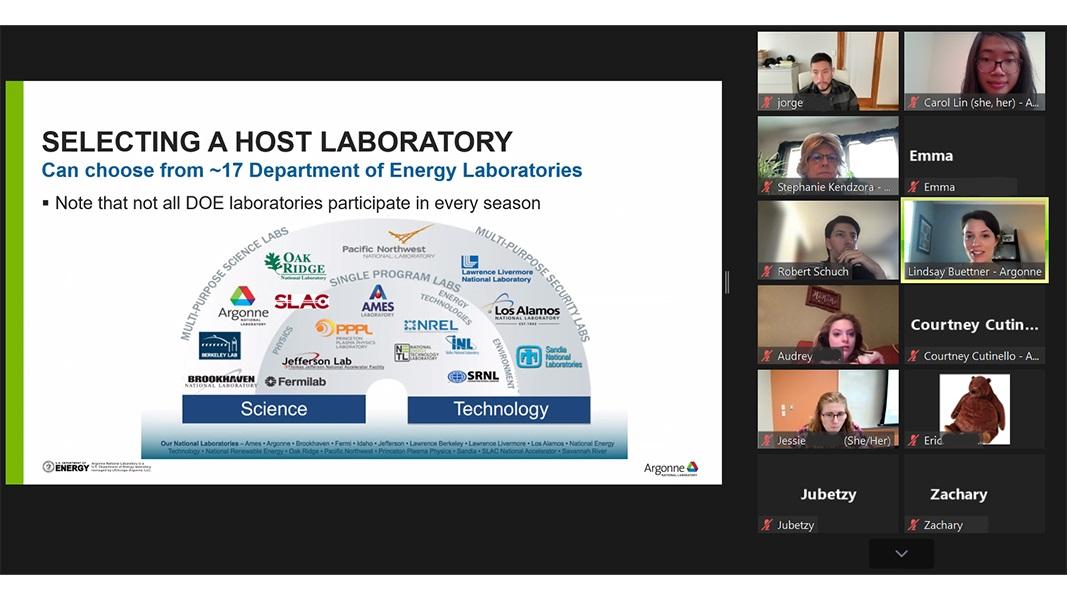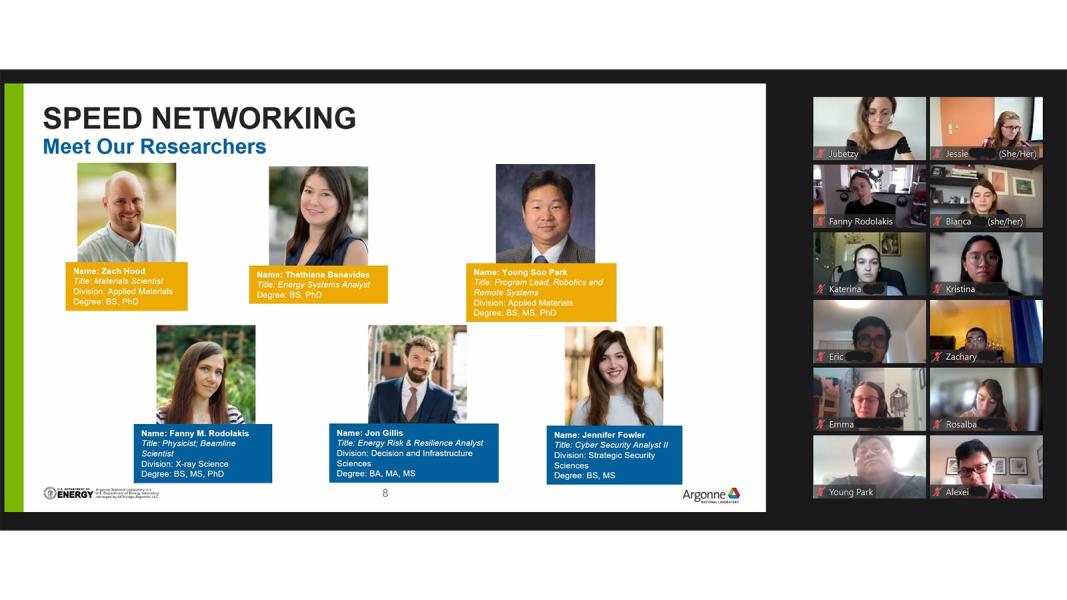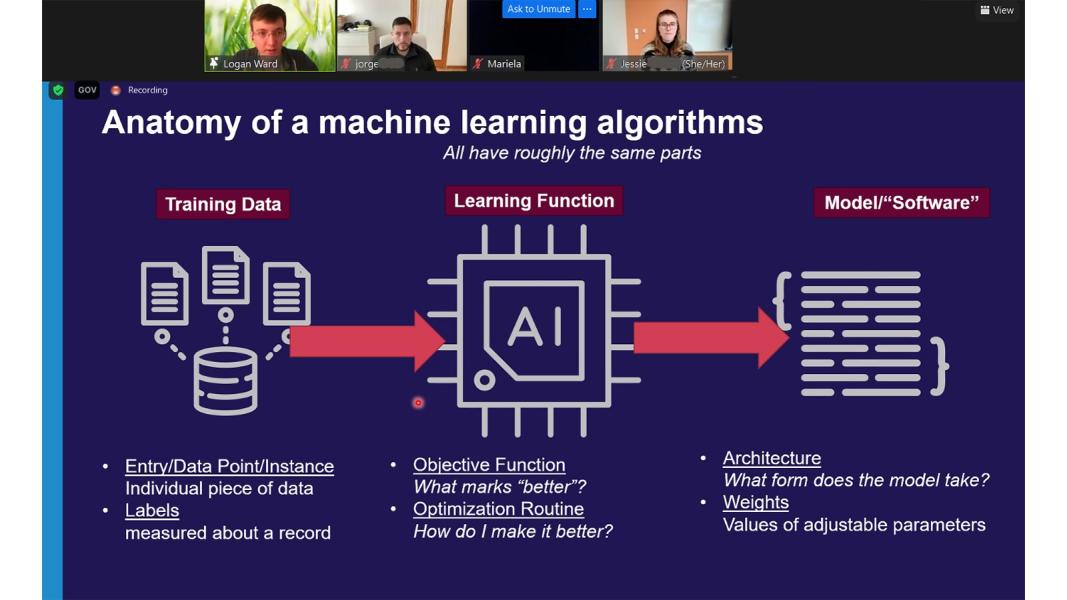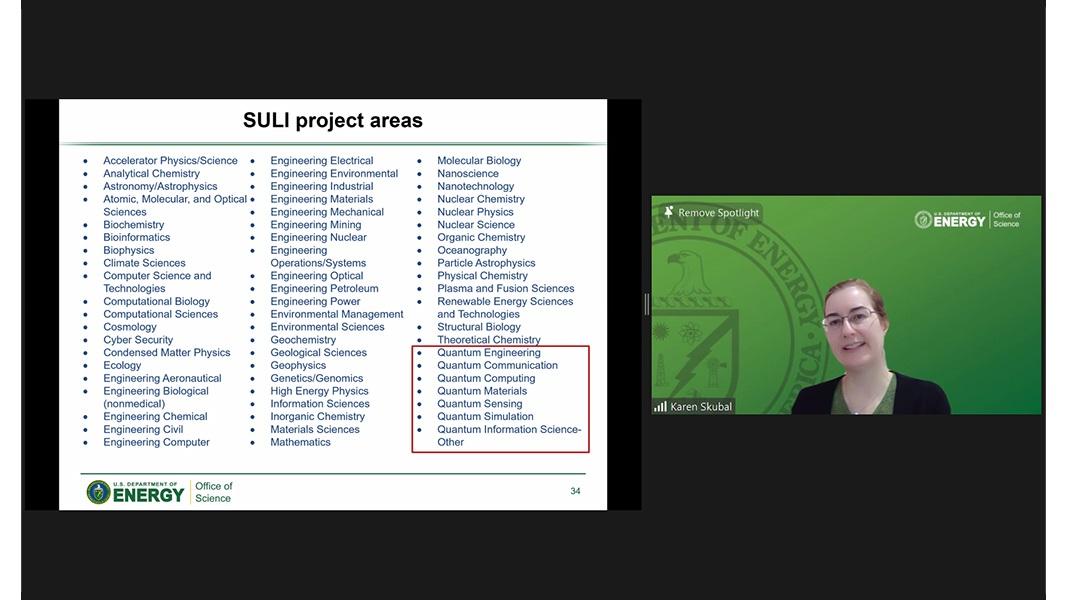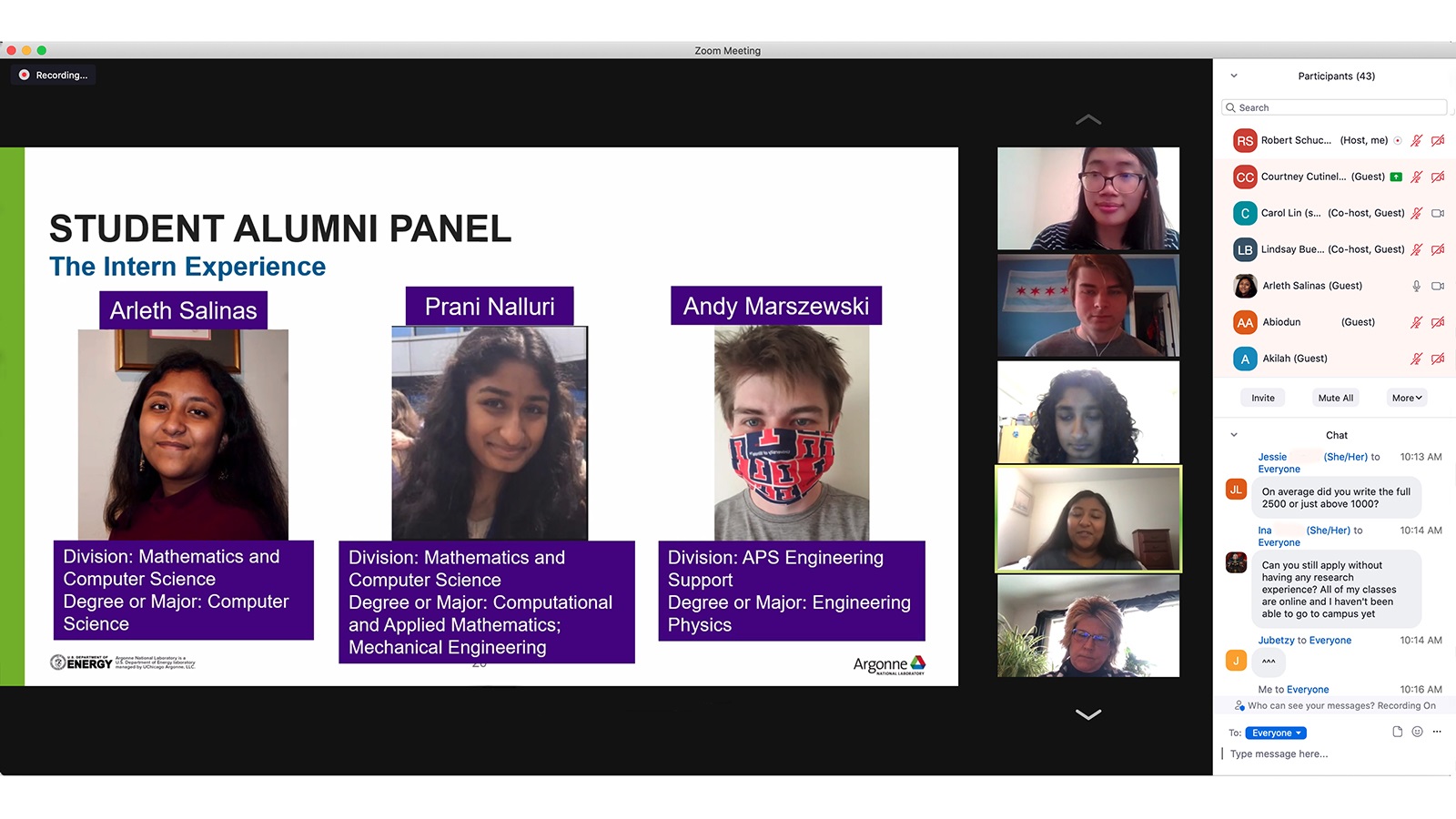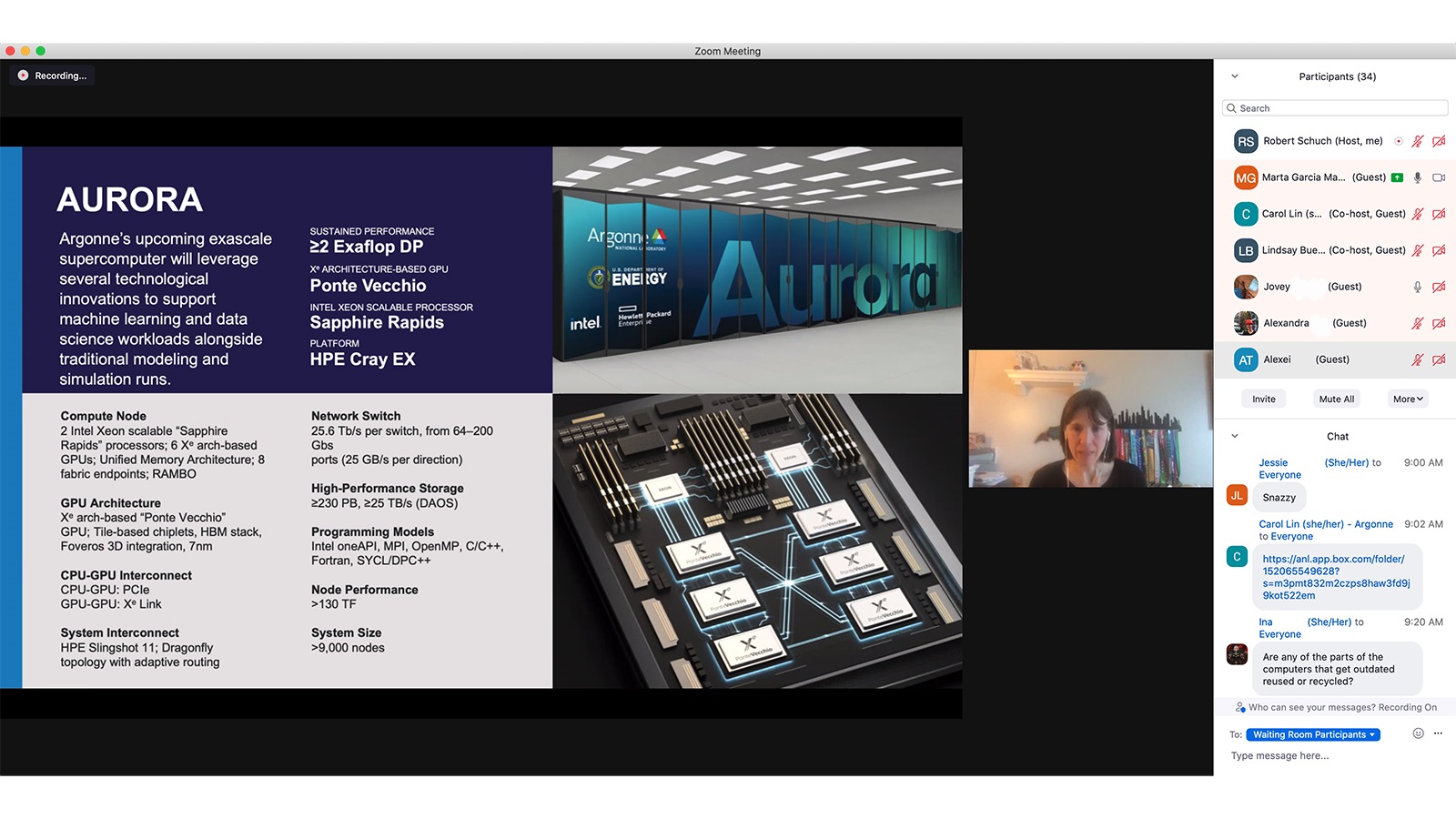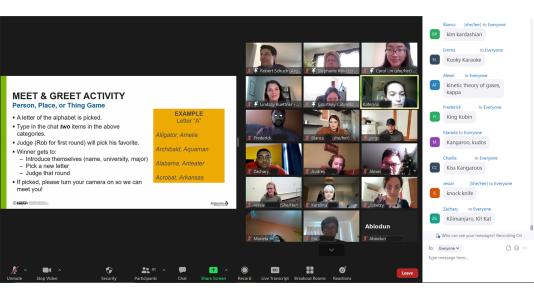
The U.S. Department of Energy’s (DOE) Argonne National Laboratory hosted the Computing Across the Sciences Mini Semester in December 2021. This program engages undergrad students in hands-on workshops and activities that explore computational research. The immersive experience builds critical science, technology, engineering and mathematics (STEM) skills. In addition, the annual Mini Semester creates new opportunities for students who are otherwise underrepresented in STEM fields by connecting them to the DOE’s Office of Science internship programs.
National laboratories such as Argonne offer many undergraduate and graduate internship opportunities each year, such as the Science Undergraduate Laboratory Internship (SULI) and the Community College Internship (CCI). Argonne’s Educational Programs and Outreach department is becoming more accessible for underrepresented students from diverse schools and communities.
“It can be hard to successfully apply to internships. They are highly competitive, and if you are not already familiar with the STEM education pathways at the lab, these programs can seem intimidating,” said Lindsay Buettner, Argonne’s university student program lead. “By making the programs more accessible to students from a wide range of backgrounds and communities, we can support a stronger, more diverse student body. They will then become our next generation of STEM leaders in the nation and world.”
“Over and over, I hear stories from research staff on how working with students reinvigorates them, and sometimes even brings new ideas to problems they’re working on. You are the future of Argonne. The success of our work stems from the collaborations between our staff and student communities. The different backgrounds, talents, viewpoints and personalities that you all bring to our community are highly valued here.” — Meridith Bruozas, Educational Programs and Outreach manager
During the four-day, virtual Computing Across the Sciences Mini Semester, activities included panels with researchers, tours of the lab’s world-class facilities, and coding challenges for the students to solve. The Mini Semester also informed students how to apply for internships at the lab, with sessions covering how the application process works. The first day of the event featured an alumni panel of past interns. Students also networked with the lab mentors they could potentially partner with for internships.
The alumni helped students understand what they could experience in an internship.
“I did not have any research experience the first time I applied, but that’s why I applied. This internship is meant to give that to you,” said Arleth Salinas, a former SULI intern. “I was nervous, but when I came in, there were many resources to help students get through the internships successfully. I gained an abundance of knowledge about research. You just need enthusiasm and patience, because it’s not easy. But as long as you’re open and willing to learn, you’ll succeed.”
In addition, the alumni interns highlighted how the internships can make a significant difference in students’ STEM paths, no matter what they decide to do.
“Even if you don’t plan to go to grad school, an internship like Argonne’s looks incredible on your resume,” said Andy Marszewski, another past SULI intern. “It’s just going to set you up so well for the future when you do an internship at a national lab. Argonne is especially well-regarded, so I highly recommend applying.”
Victor Escudero, a sophomore at Moraine Valley Community College, decided to apply for an internship in the CCI program after the 2021 Mini Semester.
“I was already considering applying to Argonne, but attending the program gave me even more reasons,” he said. “I learned what researchers do at Argonne. Every single project they talked about was interesting and inspiring. I want to meet these great minds and see what it is like to be a researcher. They cleared up all the questions I had about the application and prepared me for the application, helping me stand out from other applicants.”
After a successful application, Escudero is excited to work with mentor Hao Cai of Argonne’s Energy Systems division this summer.
“Over and over, I hear stories from research staff on how working with students helps them, and sometimes even brings new ideas to problems they’re working on,” Meridith Bruozas, Argonne’s Educational Programs and Outreach manager, said at the beginning of the event. “You are the future of Argonne. The success of our work stems from the collaborations between our staff and student communities. The different backgrounds, talents, viewpoints and personalities that you all bring to our community are highly valued here.”
This work was supported in part by the U.S. Department of Energy, Office of Science, Office of Workforce Development for Teachers and Scientists.
Argonne National Laboratory seeks solutions to pressing national problems in science and technology. The nation’s first national laboratory, Argonne conducts leading-edge basic and applied scientific research in virtually every scientific discipline. Argonne researchers work closely with researchers from hundreds of companies, universities, and federal, state and municipal agencies to help them solve their specific problems, advance America’s scientific leadership and prepare the nation for a better future. With employees from more than 60 nations, Argonne is managed by UChicago Argonne, LLC for the U.S. Department of Energy’s Office of Science.
The U.S. Department of Energy’s Office of Science is the single largest supporter of basic research in the physical sciences in the United States and is working to address some of the most pressing challenges of our time. For more information, visit https://energy.gov/science.
